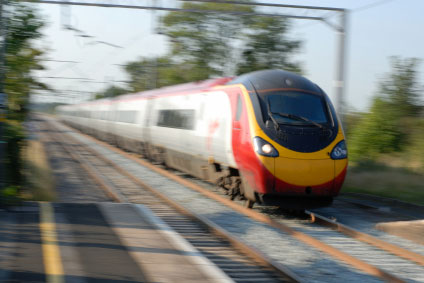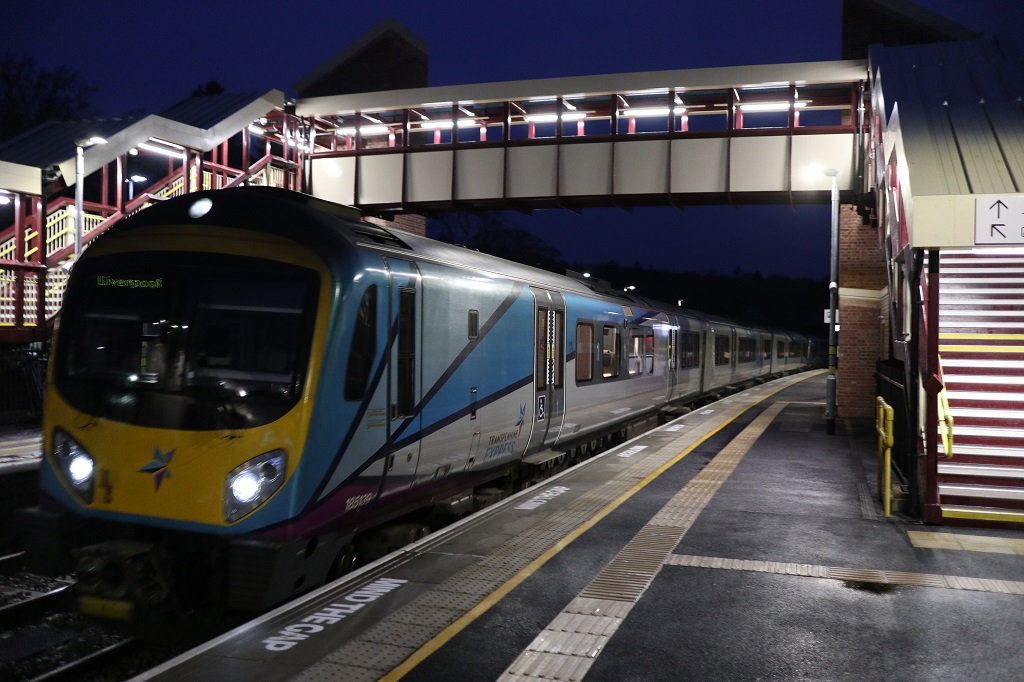London to Manchester high-speed rail plans announced
Transport Secretary Andrew Adonis has announced proposals for delivering an initial core high-speed rail network which will link London to Manchester with trains running at up to 250 miles an hour.
The development of a 335 mile 'Y'-shaped network would bring the West Midlands within about half an hour of London, and deliver journey times of 75 minutes or less from Leeds, Sheffield and Manchester to the capital.
Connections onto existing tracks would be included, allowing direct high-speed train services to be operated to cities including Glasgow, Edinburgh, Newcastle and Liverpool as soon as the line opens. Further consideration will also be given to extending the network subsequently to these and other major destinations.
Adonis said: "The time has come for Britain to plan seriously for high-speed rail between our major cities. The high speed line from London to the Channel Tunnel has been a clear success, and many European and Asian countries now have extensive and successful high speed networks. I believe high-speed rail has a big part to play in Britain's future.
"Over the next twenty to thirty years the UK will require a step-change in transport capacity and connectivity both to promote and respond to long-term economic growth. However, this must be delivered sustainably, without unacceptable environmental impacts, and in line with the Government's strategy to promote a low carbon economy.
"High-speed rail would be by far the most effective way to achieve this step-change, offering a balance of capacity, connectivity and sustainability benefits unmatched by any other option.
"The proposed high-speed rail strategy I am setting out today will now go forward to full public consultation in the autumn. Building this network would not only revolutionise Britain's transport, but would also present significant new opportunities for the UK's design, engineering, construction and manufacturing sectors, creating new jobs and skills."
The North West Development Agency has been calling on the Government to implement a comprehensive high-speed rail network to help drive economic growth into the region.
Steven Broomhead, chief executive of the NWDA, said: "The NWDA warmly welcomes the government's visionary proposals for high-speed rail, announced earlier today. We know that by 2020 capacity in the region's existing rail links to London and the South will be exhausted, whilst our motorway link via the M6 is heavily congested, so a new rail link is certainly needed. It makes sense to build the new link to modern high speed standards, reducing journey times to the capital and releasing capacity on the existing rail network for vital freight and local services.
"We know that places within a one hour travel time to London benefit significantly from its wealth and economic power and we can expect that Manchester, Liverpool, Preston and our other major centres in the North West will benefit significantly in the future from the economic stimulus and environmental benefits which high speed rail services would bring."
The Government has formed its proposals after consideration of a detailed report from HS2, the company set up by the Government in January 2009 to investigate the case for high-speed rail.
Under the proposals, the recommended route for a London-Birmingham high-speed line would run from a rebuilt Euston station to a new Birmingham City Centre station at Fazeley and Curzon Street. A Crossrail interchange station would be built at Old Oak Common in West London, giving the new line direct connections to the West End, City and Docklands via Crossrail, to the South West via the Great Western main line and to Heathrow via the Heathrow Express.
A second interchange station could also be located to the south east of Birmingham, offering direct links to Birmingham Airport, the National Exhibition Centre and the M6 and M42.
In the first instance the line would connect to Heathrow airport through a direct link to the Heathrow Express at Old Oak Common. However, the Government has today appointed Lord Mawhinney, a former Transport Secretary, to examine potential options for a future station at the airport itself. Further work is also being carried out to assess options for a connection to the wider European high speed rail network, through either or both a dedicated rapid transport system linking Euston and St Pancras and a direct rail link to High Speed One.
HS2 has provided an estimated cost of £30bn for the core 'Y' network and also found that construction costs for major projects in the UK are higher than for comparable projects elsewhere in Europe. In the light of this evidence, Infrastructure UK, the body set up to help ensure that publicly funded infrastructure is effectively prioritised and delivered, will work with the Department for Transport to consider whether and how construction costs can be reduced. Further work on HS2's cost estimates may be required following the completion of that work.
The Government proposes to secure the powers to deliver any high-speed network by means of a single hybrid bill. Depending on the outcome of consultation and Parliamentary timescales and approval, this should allow construction to start after the Crossrail scheme is completed from 2017 with the high speed network opening in phases from 2026.





What a load of bull, stating this was set up in september 2009. They have known about plans for this a long time ago. What rights have they to destroy the dreams and aspirations of all the folk that this rail link will carve through our land. Using tax payers monies to further fill the pockets of the money people that control our so called leaders.
By david neath